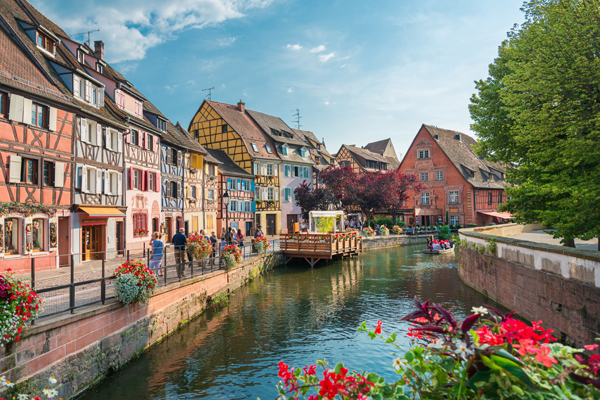
Strasbourg is a popular retirement destination for international retirees due to its rich history, vibrant culture, and high quality of life. The city offers a unique blend of French and German influences, with its picturesque old town, world-class museums, and renowned cuisine. However, retiring in a foreign country can also present challenges, such as language barriers and adapting to a new healthcare system. This article will explore the best aspects of retiring in Strasbourg, as well as some of the potential difficulties.
Living Expenses in Strasbourg
Strasbourg offers a relatively affordable cost of living compared to other major European cities. Housing is generally cheaper than in Paris or London, and retirees can find a variety of options, from charming old town apartments to modern condos in the suburbs. Groceries, dining out, and public transportation are also reasonably priced. However, international retirees should be aware that taxes in France can be high.
Climate Throughout the Year
Strasbourg has a temperate climate, with warm summers and cool winters. The city experiences four distinct seasons, with beautiful spring blossoms and colorful autumn leaves. Winters can be chilly, with occasional snow, but the city’s Christmas market is a highlight of the season. Summers are generally mild, with temperatures rarely exceeding 30°C (86°F).
Healthcare Facilities
Strasbourg is home to several top-rated hospitals, including the University Hospital of Strasbourg, which is renowned for its research and specialist care. There are also numerous general practitioners and specialists throughout the city. However, it’s important for retirees to secure adequate health insurance, as medical costs can be high without coverage.
Public Healthcare System
France has a comprehensive public healthcare system, which is accessible to residents who contribute to the social security system. International retirees can apply for a residence permit that includes healthcare coverage, although this may require proof of sufficient income or assets. Many retirees also choose to purchase private health insurance for additional coverage.
Residency Options
France offers several types of residence permits for retirees, including long-stay visas and permanent residence permits. These require proof of financial self-sufficiency, health insurance, and a clean criminal record. It’s recommended to consult with a French embassy or consulate for the most accurate and up-to-date information.
Recreational Activities and Dining
Strasbourg offers a wealth of recreational activities, from boating on the Ill River to exploring the city’s many parks and gardens. The city is also known for its cuisine, with a variety of restaurants serving traditional Alsatian dishes. Some popular choices include Maison Kammerzell, Le Clou, and Au Pont Corbeau.
Language Learning Opportunities
While many locals speak English, learning French can greatly enhance your retirement experience in Strasbourg. The University of Strasbourg offers French language courses for adults, and there are also several private language schools in the city, such as the Alliance Française.
Local Culture and Markets
Strasbourgers are known for their friendliness and hospitality, and the city has a strong sense of community. There are several weekly markets where locals and retirees can buy fresh produce, cheese, and other regional specialties. The most famous is the Strasbourg Christmas Market, which attracts visitors from around the world.
Meeting People and Volunteering
Joining local clubs and organizations is a great way for retirees to meet people and get involved in the community. There are also numerous volunteer opportunities, such as helping out at local charities or participating in community events. The city’s Volunteer Bureau can provide more information on available opportunities.
Housing and Neighborhoods
Many retirees choose to live in the city center, where they can enjoy easy access to shops, restaurants, and cultural attractions. The neighborhoods of Petite France and Krutenau are particularly popular. However, those who prefer a quieter lifestyle may opt for the suburbs or nearby villages.
Transportation
Strasbourg has an excellent public transportation system, with trams and buses covering the entire city. The city center is also very walkable, and there are numerous bike paths for those who prefer to cycle. While having a car can be convenient for exploring the surrounding region, it’s not necessary for daily life in the city.


